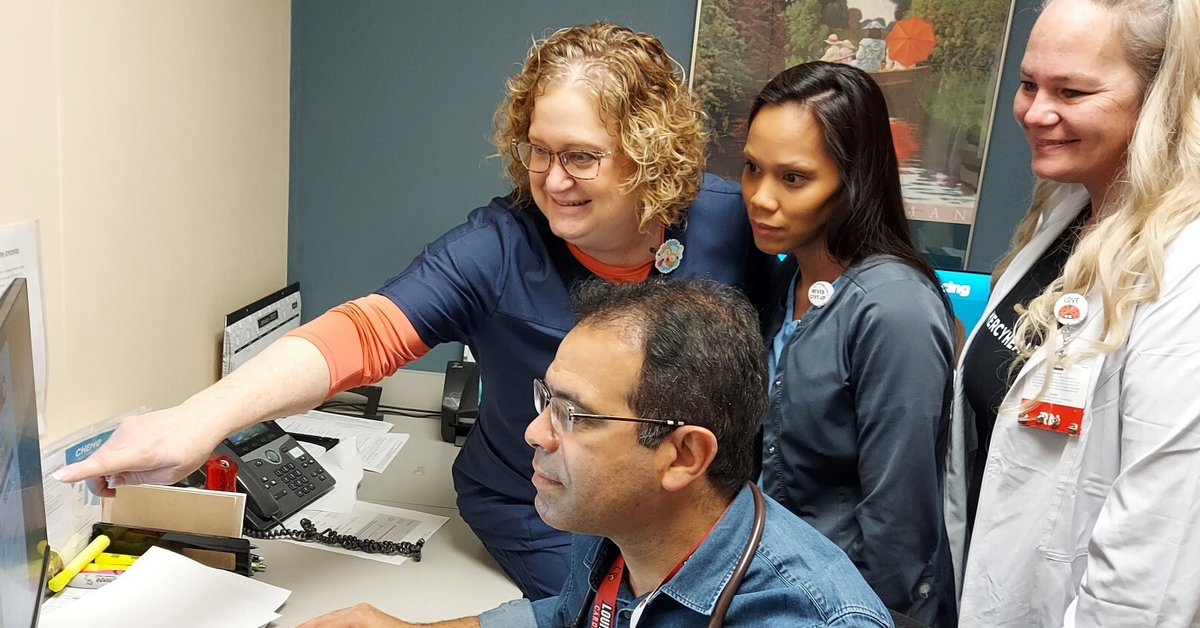Some individuals hesitate to take a trip to the emergency room after experiencing a sudden change in health. While there is a chance your symptoms are common or harmless, there is also a chance they could be life-threatening.
It is always important to take immediate action if you or a loved one is experiencing any serious changes in health. Health care facilities continue to be safe places to receive treatment, even during the current COVID-19 pandemic.
Below are seven health concerns you should never ignore.
Intense, lasting headache
Everyone gets a headache or migraine from time to time. Sometimes they’re simply the result of stress or not drinking enough water.
However, a bad headache that comes on fast could indicate a more serious issue. Additionally, tension headaches that get worse over the course of weeks could be a sign of a serious concern. This is especially true if the pain is unlike other headaches you’ve had before.
Unusually high fever that doesn’t break
Fevers are natural. In fact, a fever is typically part of your body’s defenses against an infection. This increase in body temperature often comes with symptoms like loss of appetite, chills and sweating. If your fever is associated with other signs or symptoms of infection such as shortness of breath or rash, you should call your doctor for advice.
A thermometer is the key to determining if a fever is dangerous. If your temperature rises to 103 degrees Fahrenheit or higher, it’s time to visit a doctor. If the fever doesn’t start going down after three days, you should also seek expert advice. Your body could be battling a serious infection.
Confusion or behavioral changes
Confusion means you have difficulty thinking or staying focused. You might notice your attention shifting at a rapid pace. This makes it hard for you to form normal thoughts. Dizziness or slurred speech might also happen.
These symptoms could indicate anything from a stroke to low blood pressure to severe dehydration. It’s also possible that medication you’re taking is behind the problem. Your dosage could be too high, or it might be mixing poorly with other substances, such as alcohol.
Intense chest discomfort
Intense heaviness in your chest could be a sign of a heart attack, especially if comes with pain in your arm. But there’s a catch here. These are classic signs of a heart attack in male patients. Women might have different symptoms, such as sudden fatigue or abdominal pain.
Pressure in your chest could also be a sign of bad heartburn or a muscle contraction in your esophagus. Neither is as severe as a heart attack, but never take the risk of ignoring this symptom.
Severe abdominal pain
As mentioned, abdominal pain can be a sign of heart attack in women. However, it can also indicate other conditions, such as a hole in the stomach or a burst blood vessel. It might also be a problem with your appendix, which isn’t likely in people over 50 years old. Stones in your gallbladder or an infection in your intestines are two other possible causes of the pain.
Rapid weight loss
Losing weight is a common health goal for many Americans. However, sudden weight loss that happens for no reason can be a problem.
Visit a doctor if you experience an unexplainable loss of more than 10 pounds quickly or if you’re not trying to lose weight. If the weight loss comes with feelings of sadness or fatigue, you might be dealing with a mental health condition, such as depression.
Unexplainable shortness of breath
When you’re in the middle of an exercise routine, you might feel shortness of breath. It can also be hard to breathe when you find yourself in a high-altitude area or a place with high temperatures or humidity.
But what if difficulty breathing occurs outside of those conditions? If this is the case, it is important to contact your doctor right away.
If you’re experiencing symptoms like the ones listed above, or any other symptoms that alarm you, seek medical attention immediately.
Learn more about the health care services we provide at Mercy Health.






